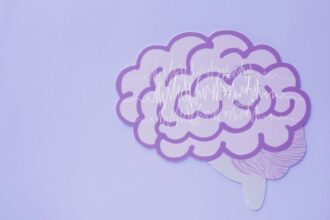Trauma and addiction can feel like a two-for-one sale nobody meant to click. Your brain keeps firing danger flares, your body leans on substances for relief, and life shrinks down to survival mode. The good news: recovery isn’t a stiff program carved in stone. It’s a living, breathing process that bends with you, not against you. We’ll walk through the science, the messiness, and the surprisingly hopeful moments of healing – minus the preachy vibe.
The body keeps score, but you can re-write the playbook
Trauma changes physiology first and feelings second. Cortisol surges, the amygdala treats every slammed door like a tiger, and the reward system starts chasing quick fixes. When alcohol or pills step in as faux safety blankets, that stress loop locks tight. Restoring balance means calming the nervous system before tackling cravings head-on: think paced breathing, gentle movement, even a weighted blanket that feels like a hug you don’t have to explain. Trauma-informed therapy, such as EMDR or somatic experiencing, helps unplug the false alarms while building new neural pathways for safety. Once the body feels less under siege, the pull toward substances loosens – like taking bricks out of a backpack you never agreed to carry.
Safe space, real work
Facilities matter. Ever tried sharing deep-seated pain next to a snoring roommate who hogs the remote? I didn’t think so. A women’s rehab center shifts the odds by removing the pressure to perform toughness or dodge judgmental stares. Staff trained in gender-specific care recognize patterns women face – hello, caretaking overload and society’s tidy expectations – while trauma-specific programming keeps therapy from feeling like emotional karaoke. Group sessions that focus on boundaries, shame resilience, and healthy relationships land differently when everyone understands the cultural land mines baked into womanhood. Add residential comforts (as in actual bedding worthy of a real adult) and on-site childcare, and suddenly rehab feels less like exile and more like strategic retreat.
Rewiring, one bold step at a time
Big breakthroughs rarely arrive in glittering epiphanies. They show up in daily reps: journaling when cravings hit, swapping doomscrolling for a walk, and laughing – yes, laughing – at the absurdity of healing while juggling carpool. Evidence-backed modalities keep the momentum rolling. Mid-session breathwork sprints lower heart rate variability faster than a double espresso spikes it. Skills groups dig into distress tolerance, while trauma-sensitive yoga teaches your hips they’re safe to unclench. Peer-led storytelling circles reduce isolation; medication-assisted treatment cuts relapse risk without dulling emotional range. These modern approaches clear space for authenticity instead of forcing recovery into a one-size-fits-none mould.
Community: the antidote to isolation
Shame loves silence. Community breaks it. Maybe it’s a local recovery meeting staffed with seasoned sponsors who’ve seen every side road back to sobriety. Maybe it’s an online forum where midnight panic gets answered by a stranger who just gets it. Either way, the shared language of “same here” stops trauma from gaslighting you into thinking you’re uniquely broken. Social connection also rewires the brain’s reward circuitry with oxytocin instead of Pinot Grigio. Translation: you still get feel-good hormones, but minus the hangover and questionable texts. Bonus lesson: healthy disagreement. Arguing about whose turn it is to bring snacks turns out to be excellent practice for setting boundaries off the clock.
Creative expression as a pressure valve
Trauma clamps down on language, making feelings feel like static you can’t quite tune in. Pick up a paintbrush, a thrift-store guitar, or even sidewalk chalk with your kids, and suddenly the static has a place to land. Neuroscientists keep finding that art lights up the same reward circuitry hijacked by substances—only this time the dopamine ride ends without regret. You don’t need gallery-worthy skills; finger-painting while the casserole bubbles counts. Two chords on a dusty keyboard count. The goal is to give buried stories a nonverbal exit ramp so they stop ricocheting through your nervous system.
Creativity is also sneaky strength training for resilience. When a song draft sounds off or a knitting project unravels, you learn to pivot instead of panic—a transferable skill for cravings or flashbacks. Plus, sharing your messy masterpiece with people who nod and laugh instead of critique builds that oxytocin loop faster than any support-group icebreaker. Translation: more healthy connection, less temptation to scroll delivery apps for liquid courage.
Expressive outlets hand you receipts of progress no therapist worksheet can match. Last month’s journal entry might drip with rage; this week’s poem lets in a sliver of hope. That visible arc reminds you of healing moves even when it feels stuck. So stash a sketchbook in your tote, keep a cheap mic plugged into your laptop, or slap lyrics onto sticky notes. Art won’t erase trauma, but it pries open windows so fresh air (finally) gets in.
Designing life after fire
Healing isn’t about getting back to “normal”; that version was secretly on fire. Recovery means drafting a life that doesn’t need constant anaesthesia. Maybe you switch careers, or finally block cousin Carol’s toxicity on Facebook. Financial literacy classes untangle panic around money decisions, while vocational training reminds you that meaning can grow out of ashes. Relapse setbacks? Treat them like potholes, not total derailments. Each stumble carries intel: where stress spiked, which triggers snuck up, what support was missing. Integrate the data, recalibrate, and move. Soon you’re hitting milestones – paying bills on time, sleeping through the night, laughing so loudly in a café that everyone stares – and you don’t apologise for it.
Final thoughts
Trauma and addiction write ugly first drafts, but you get final edit rights. Recovery isn’t a straight line; it’s a series of reclaiming moments that add up to freedom you can feel in your bones. Keep going; your story’s getting good.
Ellen Diamond, a psychology graduate from the University of Hertfordshire, has a keen interest in the fields of mental health, wellness, and lifestyle.








